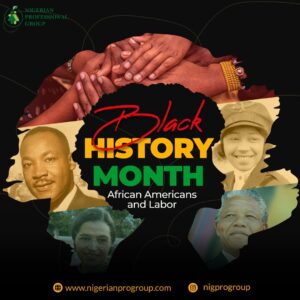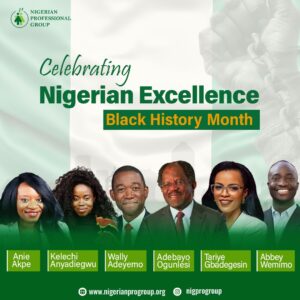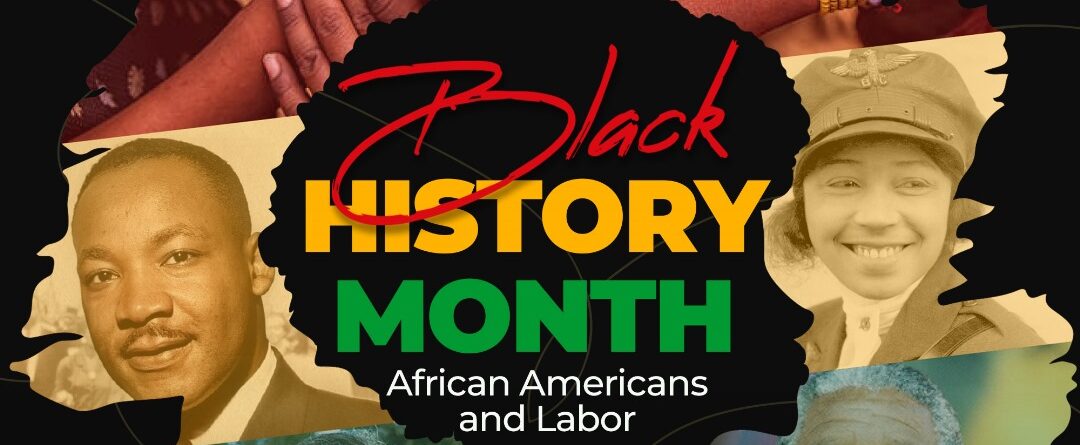Why History of The Black Matters
Why History of the Black Matters

Source: NPG
The black history month started in 1915 to honor the lives of those who fought for emancipation from slavery. To commemorate the lives of popular blacks like Martin jr King and Rosa Parks, and even down to the silent lives of Emmett Till. In this article, we want to see the importance of black history month, why it matters, and what it represents. We will also hear from some NPG members about what black month means to them.
The Importance of Black History Month is
- To instill inclusion of blacks in the society
- To eradicate prejudice
- To honor and celebrate the achievements of the black
To instill inclusion of the blacks in the society
One of the importance of black history month is not to separate black people but to instill their importance in the community. Everyone has a past, and for children and young ones to have a sense of belonging to their nation, it’s paramount to have a month dedicated to commemorating the history of the blacks. It is a month that teaches the deeds of the blacks, how they conquered slavery and oppression, and how they’re a light in the community. It’s important to show the likes of Barack Obama, who is the first African-American president in the USA, and others like Thurgood Marshall, the first African-American justice appointed to the United States Supreme Court in 1967. This causes an inclusion in the heart of the black young ones that they can be whoever they want to be. That greatness isn’t far-fetched from them.
To eradicate prejudice
Eradicating prejudice and racism is a long toll, but one that can be achieved and is already being achieved by black history month. Being taught in schools about the importance of black people and how they have contributed to the world’s growth evokes empathy in students and the world at large.
Many people are unaware of the significant contributions that black individuals have made to history, science, art, and society. Education reduces ignorance, which is a root cause of prejudice, and when people celebrate the works of the blacks, it removes prejudice.
To honor and celebrate the achievement of the black
As stated above, many people do not know the achievements of the black people, and black history month is to reflect on what the blacks have achieved over the years. It’s no small feat to conquer oppression and slavery.
Here are some achievements of the black

Source: NPG
Tariye Gbadegesin: She is a Nigerian-American businesswoman and corporate executive who is the chief executive officer of the Climate Investment Funds (CIF), effected from the first of March 2024. It is also notable to say she is the first African woman to serve in this role.
Wally Adeyemo: Wally Adeyemoo is a Nigerian-American Attorney and the first black to hold the position of Deputy Treasury Secretary during President Joe Biden’s tenure.
Adebayo Ogunlesi: Adebayo Ogunlesi is a Nigerian lawyer and investment banker. He was the former head of global investment banking at Credit Suisse First Boston before being promoted to chief client officer and executive vice chairman.
Abbey Wemimo: He is a Co-chair of the Los Angeles County Museum (LACMA) Director Circle. He also founded Esusu, a platform that empowers renters to build credit through rent payments, offers property management analytics, and provides rental assistance for financial stability.
Kelechi Anyadigewu: She is a Nigerian-American entrepreneur, she was nominated for 30 under 30 by Forbes for her distinguished retail site called Zuvaa.
Anie Akpe: Annie Akpe is a business professional and entrepreneur with more than 25 years of experience in the banking industry. She serves on the board of The New York Mortgage Coalition and is the founder of African Women in Tech.
Interviewing Members of NPG on BHM
We also interviewed some members of the Nigerian Professional Community on what BHM means to them, and some shared their opinions below:

1. If you had the opportunity to teach one key lesson about African heritage to the world during Black History Month, what would it be?
Storytelling as a Means of Preserving History and Wisdom
Oral traditions have been central to African societies, with griots (oral historians) preserving history, ethics, and cultural knowledge for generations. This highlights the power of storytelling in shaping identity, teaching values, and passing down history in ways that resonate deeply with people. African storytelling often incorporates proverbs—short, wise sayings that convey deep truths. Proverbs serve as a tool for teaching morals, guiding behavior, and resolving conflicts. Some famous African proverbs include:
- “Until the lion learns to write, every story will glorify the hunter.” (Emphasizing the importance of telling one’s own story)
- “If you want to go fast, go alone. If you want to go far, go together.” (Highlighting the power of collaboration)
2. Who is a Black figure—past or present—who has inspired you, and what impact have they had on your life or career?
Chimamanda Ngozi Adichie, a renowned Nigerian author, famously spoke about “The Danger of a Single Story” in her widely viewed TED Talk. She highlights how dominant narratives—often shaped by those in power—can distort reality and limit understanding.
In relation to African storytelling, Adichie’s quote, “The single story creates stereotypes, and the problem with stereotypes is not that they are untrue, but that they are incomplete. They make one story become the only story.” reinforces the importance of preserving and amplifying diverse African voices. Traditional African storytelling challenges the “single story” by offering a rich tapestry of narratives that capture the complexity, resilience, and beauty of African cultures.
Chimamanda, a storyteller, has inspired me to never shy away from using my voice and sharing stories, experiences and opinions. By safeguarding oral traditions, folklore, and contemporary storytelling, Africa ensures that its history is told on its own terms, rather than through external perspectives. This lesson is vital for the world: storytelling is not just about entertainment—it is about power, representation, and shaping how societies understand themselves and each other.
3. What changes would you like to see in how Black professionals are supported and recognized in the workplace or society?
More Authentic Representation and Storytelling
- Black professionals want to see narratives that reflect their full experiences, strengths, and leadership abilities, rather than limiting stereotypes.
- This means showcasing diverse career paths, leadership styles, and success stories in media, corporate communications, and history books.
- Organisations should actively highlight the contributions of Black professionals—not just during Black History Month but throughout the year.

1. If you had the opportunity to teach one key lesson about African heritage to the world during Black History Month, what would it be?
One of the most overlooked but crucial lessons from African heritage is the profound global impact of African innovation, leadership, and intellectual contributions. From ancient civilizations like Egypt, Mali, and Great Zimbabwe, to modern trailblazers in law, business, and technology, African and Black leaders like Barack Obama have played a foundational role in shaping the world as we know it.
In the legal profession, Black attorneys, judges, and policymakers have historically led groundbreaking efforts in justice and civil rights—from Thurgood Marshall, the first Black U.S. Supreme Court Justice, to modern advocates fighting for equity in corporate law and immigration reform. Similarly, in business and innovation, African and Black entrepreneurs continue to drive global industries, yet their contributions are often overlooked.
2. Who is a Black figure—past or present—who has inspired you, and what impact have they had on your life or career?
One Black figure who has deeply inspired me is Dr. Martin Luther King Jr. His fight for justice, equity, and civil rights transcended race—it was a call for fairness in all aspects of life, including the legal system. Dr. King understood that true justice is not just about laws on paper but about ensuring equal opportunities for all, a principle that resonates deeply in both corporate and immigration law.
In immigration law, his advocacy for the marginalized inspires me to support policies that protect vulnerable immigrants, ensuring they receive fair representation and due process. His famous words, “Injustice anywhere is a threat to justice everywhere,” continue to guide my passion for legal work, pushing me to seek equitable solutions for clients and advocate for diversity within the profession.
3. What changes would you like to see in how Black professionals are supported and recognized in the workplace or society?
I would love to see more intentional investment in Black talent, particularly in industries where we are underrepresented—such as the legal profession. Currently, only about 5% of lawyers in the U.S. are Black, despite Black Americans making up a much larger portion of the population. The need for greater representation in corporate law and immigration law is critical.
To address this, Law firms, corporations, and advocacy organizations must go beyond surface-level diversity initiatives and take meaningful steps—expanding recruitment efforts at historically Black colleges and universities (HBCUs), implementing mentorship programs for young Black legal professionals, and committing to equitable promotion structures. As someone navigating both corporate and immigration law, I strive to contribute by building networks, seeking mentorship, and advocating for more inclusive opportunities in both fields.




Comment (1)
I am extremely inspired along with your writing talents and also with the format to your weblog. Is this a paid subject or did you modify it yourself? Either way stay up the nice quality writing, it’s uncommon to see a nice blog like this one today!